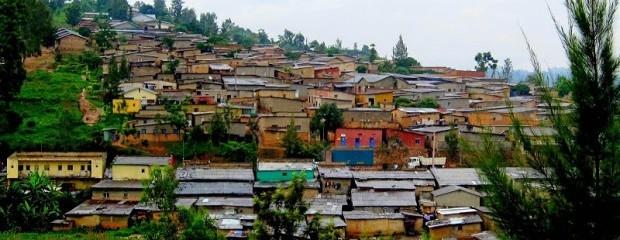Darfur: ‘Multi-Nodal’ IDP Livelihoods

A new briefing paper by Helen Young, Karen Jacobsen and Abdalmonim Osman
Livelihoods, Migration and Conflict is the most recent briefing paper in the Tufts University series on livelihoods in Darfur. It is as good as its predecessors and is essential reading for those wishing to understand the dimensions of the crisis of livelihoods and survival. Based on studies conducted in five IDP camps in Zalingei (West Darfur) and residents and IDPs in Kebkabiya (North Darfur) from 2006-8, it explores the roles of migration and remittances in livelihoods.
The report finds that in Darfur, as in other conflict zones, livelihood systems are in transition. IDP strategies are evolving in response both to blocked previous livelihood strategies, and to new opportunities presented by urbanization and the distorting effects of the presence of the international community. It describes how remittance flows have increased slightly since pre-2003, but are available only to a small proportion of the population. Remittance mechanisms have shifted to adapt to insecurity.
The findings have implications for three commonly asked questions:
“¢ If and when will IDPs return back to their rural homes?
“¢ How can a wider range of livelihood strategies be supported?
“¢ Should remittances be supported and in what ways?
The authors conclude that it is unlikely that IDPs will return to their rural home areas and previous livelihoods, and more likely that IDPs will continue to foster their increasingly urbanized ‘multi-nodal’ and transnational livelihoods. This has implications for the policy environment. They argue that innovative approaches to support livelihoods are badly needed, but it is important to monitor and evaluate their impact on different groups, the local economy and environment. In particular the implications of harmful livelihood adaptations need to be recognized and addressed – ‘mal-adaptive’ livelihood strategies might provide food and income in the short-term, but they often incur longer-term costs for the household, and can increase societal inequities and marginalization as well as over-exploiting limited natural resources.
The briefing paper is available here: livelihoods-migration-and-conflict-hy-kj-ao-4.






This report is particularly timely as it comes at a moment when international NGOs are renegotiating their presence in Darfur. Much of the discussion has implied that the goal is to return to the status quo ante, as of 3 March. Better would be to examine ways in which international assistance can be reprogrammed so as to be more effective and efficient. The last two months has been an (unfortunate) natural experiment in the disruption of assistance, and the feared humanitarian disaster has not transpired, although there have been severe problems in some sectors such as health, water and sanitation. Some other dimensions of the humanitarian response have already come into clearer focus. One of these is the way in which the good aid rations have served as a subsidy to the “multi-nodal” livelihoods described in the Tufts report. The importance of subsidizing livelihoods is not in question: what needs to be discussed is what is the best form that subsidy should take, how it should be targeted, and how big it should be. Options other than food would be cheaper (transport costs are an inordinate component of the food assistance effort, and it undermines the local food market) and contribute more effectively to sustaining and developing the emergent “multi-nodal” livelihood system.